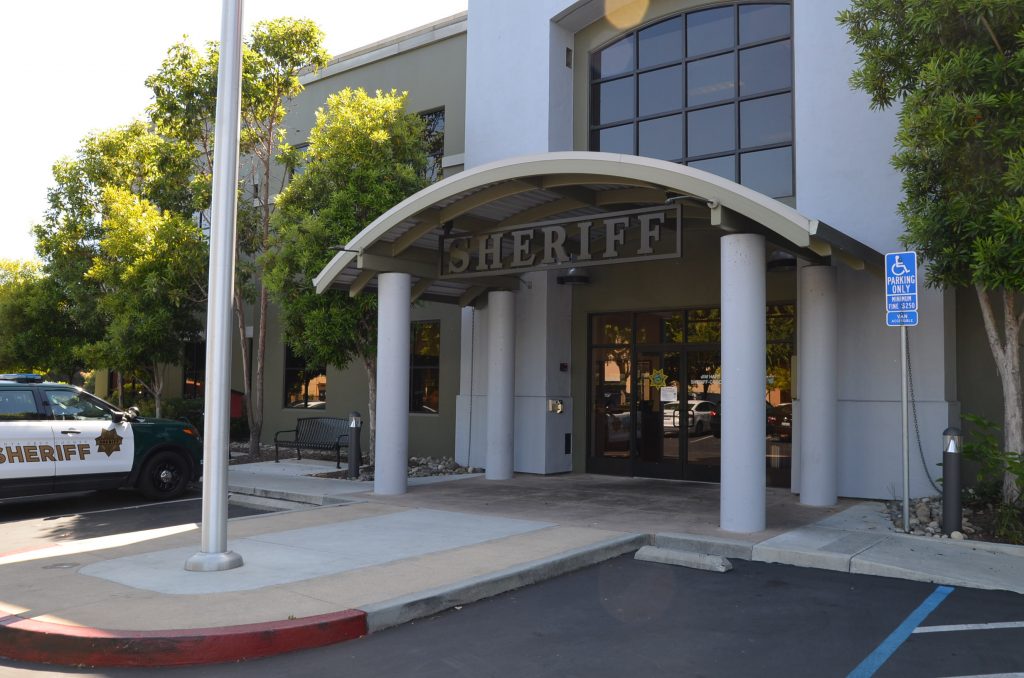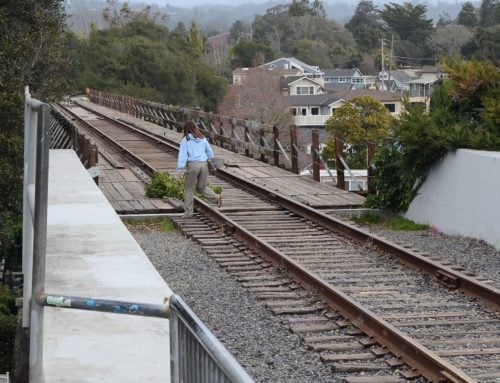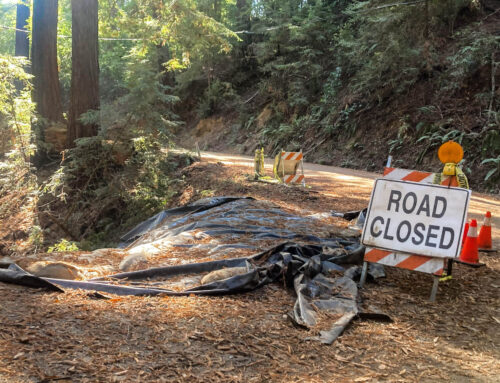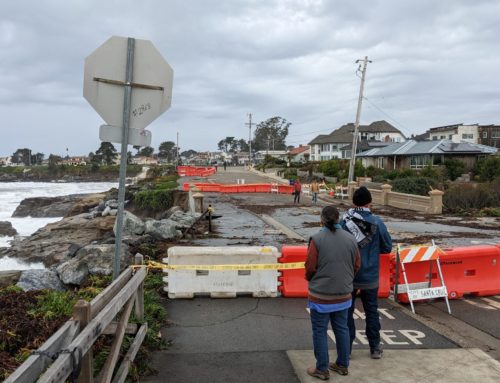Santa Cruz Local offers its news stories free as a public service.
We depend on people like you — we call them our Santa Cruz Local members — to chip in $9 a month or $99 a year to make sure vital information can be available to all. Can we count on your help?

Editor’s note: This story is the first in Santa Cruz Local’s Police Reform Series. Send us your thoughts. Your feedback will help guide our reporting.
WATSONVILLE >> A new Watsonville city committee and the Santa Cruz County Criminal Justice Council recently launched separate efforts to help improve law enforcement agencies in the county.
The Watsonville Ad-Hoc Committee on Policing and Social Equity first met in December in the wake of local and national calls for police reform. The committee includes Watsonville police, activists, nonprofit leaders and elected city leaders. It plans to study several aspects of policing, narrow its focus, then make recommendations for potential city council actions for Watsonville police in the fall.
“The biggest issue I’m hoping we address through this work is the reassessment and the reexamination of the relationship between our community and its police department,” said Francisco Estrada, a Watsonville City Council member and one the committee’s 18 members. “I hope that through this committee we can redefine that relationship, rebuild trust and bridges, and ultimately start to rethink what public safety means for the city of Watsonville,” Estrada wrote in an email to Santa Cruz Local.
Separately, Santa Cruz County’s Criminal Justice Council met in February and formed an Ad Hoc Committee on Law Enforcement Policies and Procedures. The Criminal Justice Council for more than 30 years has tried to prevent crime and gang activity by coordinating city and county elected leaders, law enforcement, the District Attorney’s Office, public defender and nonprofit and education leaders. County Supervisor Zach Friend is its chairman.
Its new committee was formed to create common standards for law enforcement officers across the county. The idea, at its base, is that residents should count on similar service from patrol officers and deputies. The standards may address the fair treatment of suspects, victims and others who come in contact with law enforcement. The new committee plans to work with the Santa Cruz County Sheriff’s Office and police in Capitola, Watsonville, Scotts Valley and Santa Cruz.
“It would be good for a group like this to start looking at policy and oversight and get all of the law agencies in this county on the same page,” said Santa Cruz County Undersheriff Mitch Medina, at the Feb. 11 meeting.
Regional approach
The idea of a more regional approach to policing came up during community discussions in Santa Cruz in the wake of George Floyd’s death in Minneapolis police custody last year, said Santa Cruz City Councilmember Justin Cummings. Cummings, who participated in February’s Criminal Justice Council meeting, said he met with Black residents and other people of color in the county who “felt that they experienced law enforcement differently depending on where they were in the county.”
As Santa Cruz mayor last year, Cummings also convened a group of Black residents to steer policy changes at Santa Cruz police. The city council unanimously approved 23 policies in November, many of which were already in place.
“There’s a lot of members of the community who are really eager to work collaboratively with law enforcement and with our criminal justice system to really bring forward policies that ensure that everyone in our community feels safe — and that they’re confident with our criminal justice system and with law enforcement,” Cummings said.
Spurred by Cummings’ vision of countywide law enforcement standards, Friend talked to the police chiefs of Capitola, Watsonville, Santa Cruz, Scotts Valley and leaders of the Sheriff’s Office at a meeting of law enforcement chiefs in December. All of the leaders expressed support for a more regional approach, said Capitola Police Chief Terry McManus. “We’re all on board with a higher level of community involvement,” McManus said at the Criminal Justice Council meeting.
The Ad Hoc Committee on Law Enforcement Policies and Procedures now includes Friend, Medina, McManus, Cummings, and recently elected Capitola City Councilmember Margaux Keiser. A representative from Watsonville police, the nonprofit group Encompass, the Youth Action Network and others also may be added.
The committee is expected to start work and report back to the Criminal Justice Council at the council’s next meeting at 3 p.m. May 13. The council also plans to meet in August and November and launch a new website. The Criminal Justice Council went on hiatus in 2020 because of the pandemic.
Friend said the committee could have uniform law enforcement policies and procedures to adopt by the end of the year.
Watsonville committee starts work
Watsonville’s Ad-Hoc Committee on Policing and Social Equity has assembled 18 members that include three Watsonville police representatives and three Watsonville City Council members. The committee met online Dec. 16 and most recently on Jan. 21.
These committee members have been split in three “home groups” to discuss law enforcement topics and narrow the full committee’s focus.
Group 1
- Watsonville City Councilmember Aurelio Gonzalez
- Debbie Israel, rabbi at Congregation Emeth
- Jen Salinas-Holz, coordinator for the Alianza Charter School Social Justice Committee, LGBTQ+ leader
- Jenny Sarmiento, Watsonville planning commissioner and former director of a youth nonprofit group
- Bobby Marchessault, minister at Missio Dei Community
- Adrian Alvarez Nava, Watsonville police officer
Group 2
- Watsonville Mayor Jimmy Dutra
- Watsonville police Capt. Jorge Zamora
- Celeste Gutierrez, former board member of California Association of Youth Courts
- Mariana Juarez, licensed clinical social worker
- Jorge Duque, licensed clinical social worker
- Erik Strum, retired State Parks superintendent, homeless advocate
Group 3
- Watsonville City Councilmember Francisco Estrada
- Anissa Balderas, housing coordinator at UC Santa Cruz
- Kristal Salcido, deputy district attorney, sex crimes division
- Jeff Tillery, director of finance operations at Monterey Bay Aquarium
- Angelica Martinez, founder of Strong One, a job training and afterschool program nonprofit
- Alex Magaña, Watsonville police officer
Committee members received a survey in January about what parts of policing they wanted to learn more about from experts in subsequent meetings. The most common choices were mental health and public safety, community policing and alternative policing models, said Tamara Vides, Watsonville’s deputy city manager and a leader of the committee.
At the committee’s next meeting at 5:30 p.m. March 18, an expert on mental health and public safety is expected to speak to the group. In the meantime, city staff and others have met with groups to understand their experiences with Watsonville police and gather input on what could be improved.
City staff met with the youth group Empower Watsonville and plans to meet with members of Digital Nest, two business groups, agricultural workers and nonprofit groups such as Communities Organized for Relational Power in Action, or COPA.
“From now to mid-April, the focus is on meeting with different stakeholders and preparing a report,” Vides said Friday. “The Ad-Hoc committee is more than just police,” Vides said. “What makes a community safe and thrive is probably broader than things police can do.”
Estrada, the Watsonville council member, said he hoped the committee would have more “community-led conversations on difficult and timely social justice issues.” In an email to Santa Cruz Local, Estrada wrote that he wanted “increased opportunities for resident engagement and active participation” and “shared spaces where learning and understanding can inform the meaningful reforms we co-create.”
Watsonville residents can provide input on law enforcement reform ideas at the next online public at 3 p.m. Feb. 27. A link is expected to be provided on the Ad-Hoc committee’s website and the city of Watsonville’s Facebook page. Residents also can ask questions about the committee’s work and provide input at [email protected]
“I hope this committee will take this opportunity to listen to our community, listen and collaborate with anyone that participates in this process, and produce lasting change for our amazing community,” Estrada said.
Stephen Baxter is a co-founder and editor of Santa Cruz Local. He covers Santa Cruz County government.





